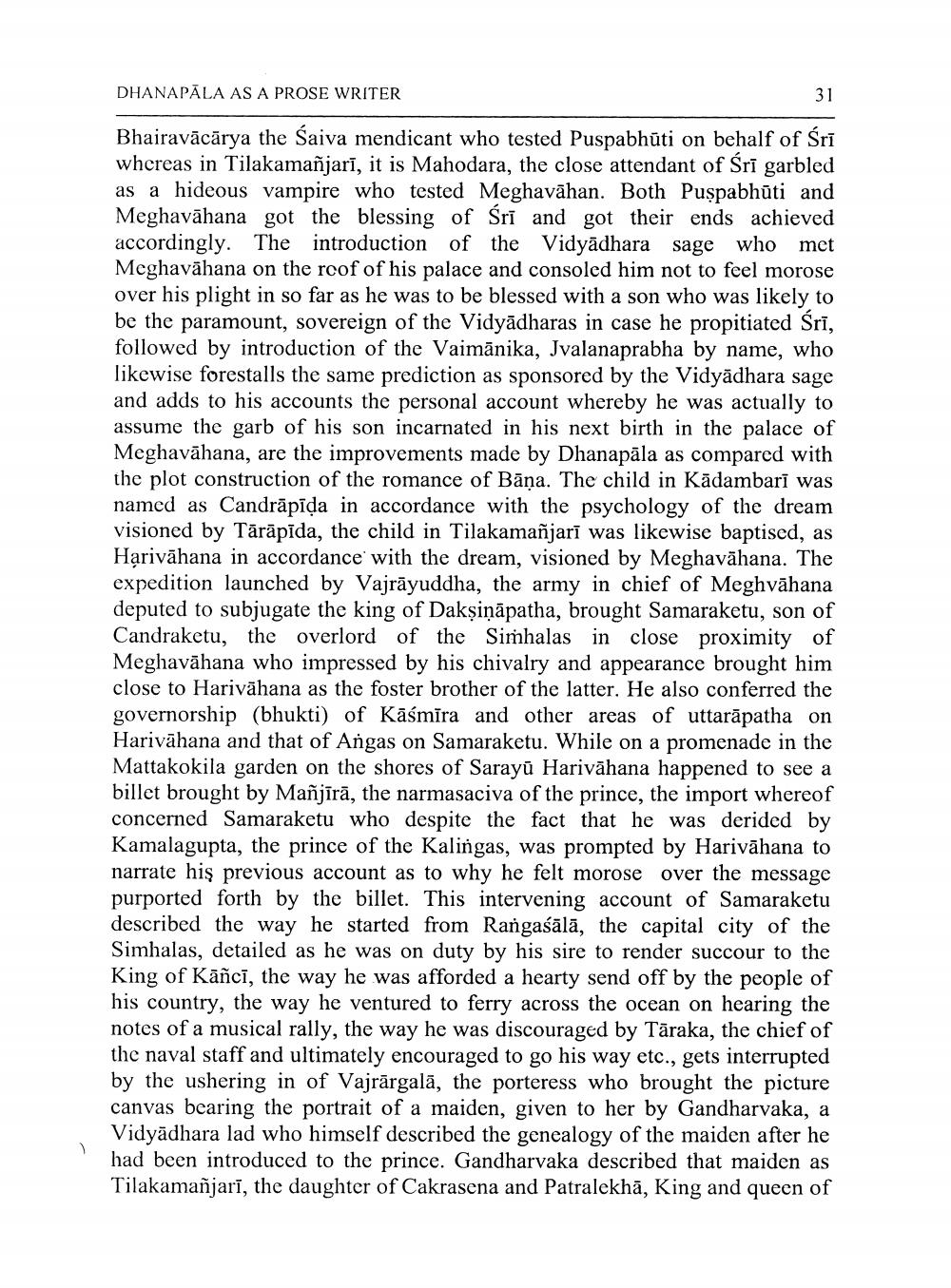________________
DHANAPĀLA AS A PROSE WRITER
31
Bhairavācārya the Saiva mendicant who tested Puspabhūti on behalf of Sri whereas in Tilakamañjarī, it is Mahodara, the close attendant of Sri garbled as a hideous vampire who tested Meghavāhan. Both Puspabhūti and Meghavāhana got the blessing of Śrī and got their ends achieved accordingly. The introduction of the Vidyādhara sage who met Meghavāhana on the roof of his palace and consoled him not to feel morose over his plight in so far as he was to be blessed with a son who was likely to be the paramount, sovereign of the Vidyādharas in case he propitiated Srī, followed by introduction of the Vaimānika, Jvalanaprabha by name, who likewise forestalls the same prediction as sponsored by the Vidyādhara sage and adds to his accounts the personal account whereby he was actually to assume the garb of his son incarnated in his next birth in the palace of Meghavāhana, are the improvements made by Dhanapāla as compared with the plot construction of the romance of Bāņa. The child in Kādambarī was named as Candrāpīda in accordance with the psychology of the dream visioned by Tārāpīda, the child in Tilakamañjarī was likewise baptised, as Hạrivāhana in accordance with the dream, visioned by Meghavāhana. The expedition launched by Vajrāyuddha, the army in chief of Meghvāhana deputed to subjugate the king of Dakşiņāpatha, brought Samaraketu, son of Candraketu, the overlord of the Simhalas in close proximity of Meghavāhana who impressed by his chivalry and appearance brought him close to Harivāhana as the foster brother of the latter. He also conferred the governorship (bhukti) of Kāśmīra and other areas of uttarāpatha on Harivāhana and that of Angas on Samaraketu. While on a promenade in the Mattakokila garden on the shores of Sarayū Harivāhana happened to see a billet brought by Mañjīrā, the narmasaciva of the prince, the import whereof concerned Samaraketu who despite the fact that he was derided by Kamalagupta, the prince of the Kalingas, was prompted by Harivāhana to narrate his previous account as to why he felt morose over the message purported forth by the billet. This intervening account of Samaraketu described the way he started from Rangaśālā, the capital city of the Simhalas, detailed as he was on duty by his sire to render succour to the King of Kāñcī, the way he was afforded a hearty send off by the people of his country, the way he ventured to ferry across the ocean on hearing the notes of a musical rally, the way he was discouraged by Tāraka, the chief of the naval staff and ultimately encouraged to go his way etc., gets interrupted by the ushering in of Vajrārgalā, the porteress who brought the picture canvas bearing the portrait of a maiden, given to her by Gandharvaka, a Vidyadhara lad who himself described the genealogy of the maiden after he had been introduced to the prince. Gandharvaka described that maiden as Tilakamañjarī, the daughter of Cakrasena and Patralekhā, King and queen of




